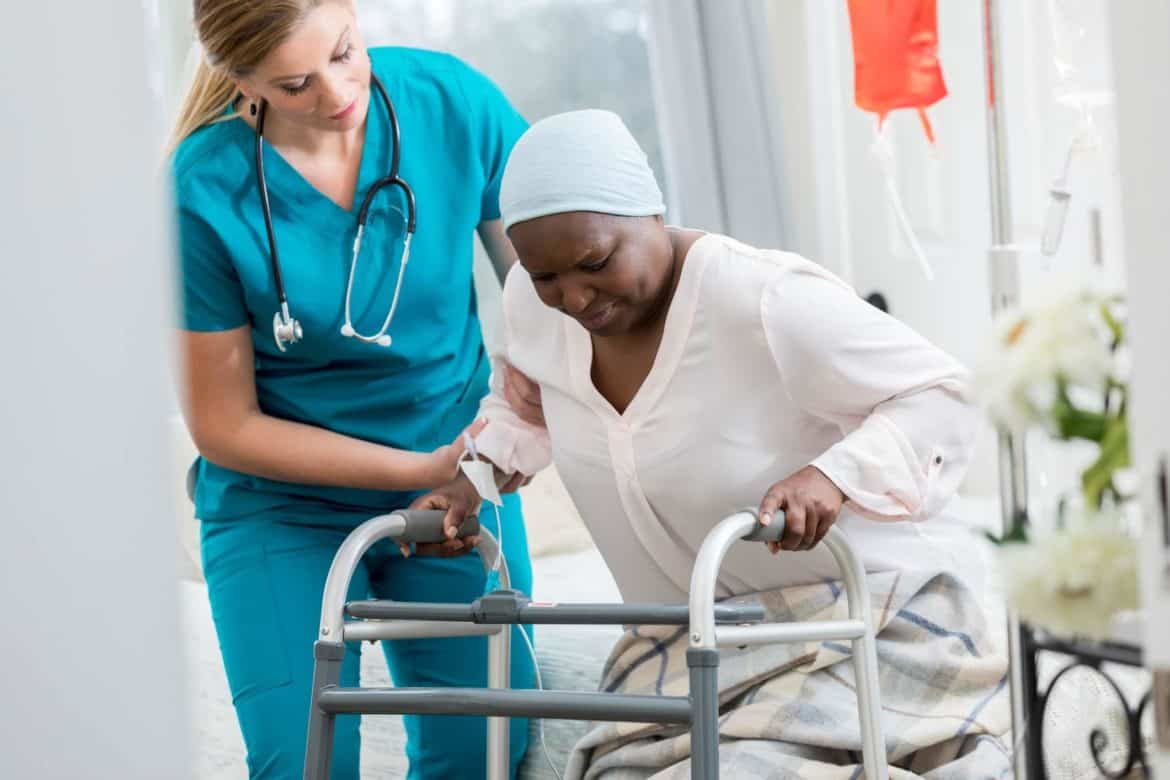Last Updated on August 15, 2024 by Frank Davis
When faced with a terminal illness like advanced-stage cancer, patients and their families often grapple with complex emotions, difficult decisions, and overwhelming medical care needs. Hospice care provides a compassionate and supportive approach during this challenging time, focusing on improving the quality of life rather than prolonging it. This blog will explore what hospice does for cancer patients, highlighting its essential role in end-of-life care.
1. What is Hospice Care?
Hospice care is a specialized type of care designed for patients who are nearing the end of life. It is typically recommended when a patient has been diagnosed with a terminal illness, such as cancer, and has a life expectancy of six months or less, assuming the disease follows its natural course. The primary goal of hospice is not to cure the illness but to provide comfort, dignity, and quality of life during the patient’s final days.
Hospice care can be provided in various settings, including the patient’s home, a hospice center, a hospital, or a long-term care facility. The focus is on managing symptoms, providing emotional and spiritual support, and helping both patients and their families navigate the complexities of end-of-life care.
2. Symptom Management and Pain Relief
One of the most critical aspects of hospice care for cancer patients is the management of pain and other distressing symptoms. Cancer can cause severe pain, fatigue, shortness of breath, nausea, and other uncomfortable symptoms. Hospice care teams, which often include doctors, nurses, and specialized therapists, are trained to manage these symptoms effectively.
Hospice teams use a variety of methods to alleviate pain, including medication, physical therapy, and alternative therapies like massage and acupuncture. The goal is to keep the patient as comfortable as possible, enabling them to spend their remaining time with their loved ones in peace, rather than in pain.
3. Emotional and Psychological Support
A cancer diagnosis, especially in its advanced stages, can be emotionally devastating for both the patient and their family. Hospice care recognizes the importance of addressing the emotional and psychological needs of those involved.
Counseling and support groups are often available to help patients cope with feelings of fear, sadness, anger, and anxiety. Social workers and psychologists on the hospice team can provide one-on-one support, helping patients come to terms with their diagnosis and find peace. Hospice also offers bereavement support for families, helping them process their grief and adjust to life after the loss of their loved one.
4. Spiritual Care
For many patients, spirituality plays a significant role in their journey through illness and death. Hospice care includes spiritual support as a core component, recognizing that end-of-life care involves more than just physical needs.
Chaplains and spiritual counselors on the hospice team are available to provide guidance, comfort, and a listening ear, regardless of the patient’s religious beliefs or spiritual practices. They help patients and their families explore and address spiritual concerns, find meaning in their experience, and, if desired, participate in religious rituals or practices.
5. Support for Families
Hospice care doesn’t just focus on the patient; it also extends support to the family. Caring for a loved one with terminal cancer can be physically and emotionally exhausting. Hospice care teams provide respite care, allowing family members to take breaks and recharge while knowing their loved one is being well cared for.
In addition, hospice teams offer practical assistance with tasks like coordinating medical appointments, managing medications, and providing education on how to care for the patient at home. This support can be invaluable for families who may feel overwhelmed by the demands of caregiving.
6. Coordination of Care
Cancer treatment can involve a range of medical professionals, from oncologists and surgeons to radiologists and palliative care specialists. Hospice care helps coordinate this often complex web of care, ensuring that all providers are on the same page and that the patient’s wishes are respected.
The hospice team acts as a central point of contact, managing communication between different healthcare providers, arranging for necessary medical equipment, and ensuring that the patient receives consistent, compassionate care. This coordination helps reduce the stress on both the patient and their family, allowing them to focus on spending quality time together.
7. Focus on Quality of Life
At the heart of hospice care is a commitment to improving the quality of life for cancer patients in their final stages. Rather than focusing on curative treatments that may no longer be effective, hospice prioritizes comfort, dignity, and meaningful experiences.
This approach often includes personalized care plans that reflect the patient’s goals and preferences. Whether it’s managing pain, enabling the patient to participate in cherished activities, or simply ensuring that their final days are spent in a peaceful environment, hospice care is designed to honor the patient’s wishes and enhance their well-being.
8. Education and Advocacy
Hospice care teams also play an essential role in educating patients and their families about what to expect as the illness progresses. This education can help demystify the dying process, reduce fear, and empower families to make informed decisions.
In addition, hospice teams advocate for the patient’s wishes, ensuring that their end-of-life care aligns with their values and preferences. Whether it’s respecting a patient’s decision to stop aggressive treatments or supporting their desire to die at home, hospice teams work tirelessly to honor the patient’s autonomy.
9. End-of-Life Planning
Hospice care also assists with end-of-life planning, helping patients and their families make important decisions about their care and final arrangements. This can include advance directives, do-not-resuscitate (DNR) orders, and funeral planning.
By addressing these matters proactively, hospice care can alleviate the burden on families during a highly emotional time. Patients can have peace of mind knowing that their wishes will be respected, and families can focus on supporting their loved one rather than navigating complex legal and medical decisions.
Conclusion
Hospice care for cancer patients is a holistic approach that addresses the physical, emotional, spiritual, and practical needs of both patients and their families. By focusing on comfort and quality of life, hospice provides a compassionate alternative to aggressive treatments that may no longer be effective. Through pain management, emotional support, spiritual care, and practical assistance, hospice helps cancer patients live their final days with dignity and peace. For families, hospice offers invaluable support, guidance, and relief during one of life’s most challenging moments. Ultimately, hospice care honors the journey of life, helping patients and their loved ones find meaning, comfort, and connection in the face of terminal illness.














